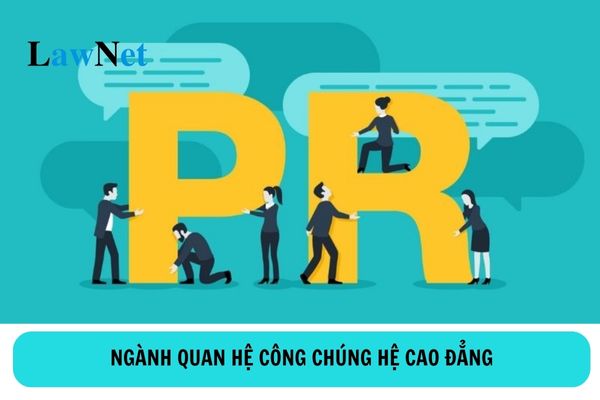Vietnam: What jobs can graduates of college-level public relations do?
What jobs can graduates of college-level public relations in Vietnam do?
According to Subsection 5, Section A, Part 2 of the Regulation on the requirements on minimum knowledge and competencies for graduates from intermediate/college level majors in journalism, information, business, and management sectors (hereinafter referred to as the Regulation) issued with Circular 41/2018/TT-BLDTBXH, graduates of college-level public relations in Vietnam may hold in the job positions in the industries or domains:
- Public Relations;
- External communications;
- Internal communications;
- Event organization;
- Social media management;
- Customer care;
- Media content writing.

What jobs can graduates of college-level public relations in Vietnam do? (Image from the Internet)
What is the definition of college-level public relations in Vietnam?
Based on Subsection 1, Section A, Part 2 of the Regulation issued with Circular 41/2018/TT-BLDTBXH, college-level public relations (abbreviated as PR) is an industry or domain that constructs and improves the image of individuals or companies, delivers information to the media and attracts their attention, meeting Level 5 requirements in the Vietnam National Qualifications Framework.
Although its effectiveness cannot be measured as precisely as in marketing and advertising, creating a distinct image and increasing goodwill from customers and the public are the ultimate goals that PR professionals must achieve.
The main role of PR in commercial promotion activities is to help a company convey positive messages to its customers and important public groups. After the content reaches target audiences through PR, the company's products and services will enter the customers' consciousness; thereby, guiding their attitudes and behaviors more easily.
In current enterprises, the PR's operation scope is extensive but mainly focuses on sectors such as the organization of special events, crisis management, maintenance of relations with the media and authorities, and organization of internal communications activities...
Additionally, PR work also includes preparing sponsorship and charity information and organizing activities demonstrating the social responsibility of individuals/enterprises.
The scope of work and specific tasks of the PR profession include planning, implementing company image promotion, reviewing possible communication crises arising from an activity/comment on social media, and finding ways to resolve issues related to the company’s image.
The main job content includes internal communications, external communications, event organization, social media management, customer care, content writing, crisis communication management… The work intensity is high, requires withstanding time pressure, and ensures the satisfaction of businesses, customers, and partners.
Minimum knowledge volume: 2,500 hours (equivalent to 90 credits).
What are the knowledge requirements for graduates of college-level public relations in Vietnam?
Based on Subsection 2, Section A, Part 2 of the Regulation issued with Circular 41/2018/TT-BLDTBXH, graduates of college-level public relations in Vietnam must meet the following knowledge requirements:
- Describing the position and role of public relations in business communication activities;
- Presenting the planning and implementation process of public relations campaigns and communication in general;
- Listing internal and external communication activities in an enterprise;
- Explaining the process of organizing media events;
- Describing the crisis communication management process;
- Stating the process of writing and the style of media publications, with a special focus on the role and benefits of press releases in business communication;
- Describing ethical principles in the PR profession and business communication negotiation skills;
- Defining the concept, purpose of presentations, message components, and steps for public presentations;
- Explaining the market and environmental impact on building relationships with public groups of the enterprise;
- Describing basic digital marketing knowledge and the effective application of various tools corresponding to the goals of each communication campaign;
- Explaining marketing functions in an enterprise, methods, and tools for building integrated marketing communication (IMC) strategies;
- Listing basic legal aspects, with special focus on advertising and press laws; principles of information exploitation and use, copyright, and intellectual property regulations;
- Elaborating on fundamental knowledge about politics, culture, society, law, national defense and security, and physical education as regulated.

